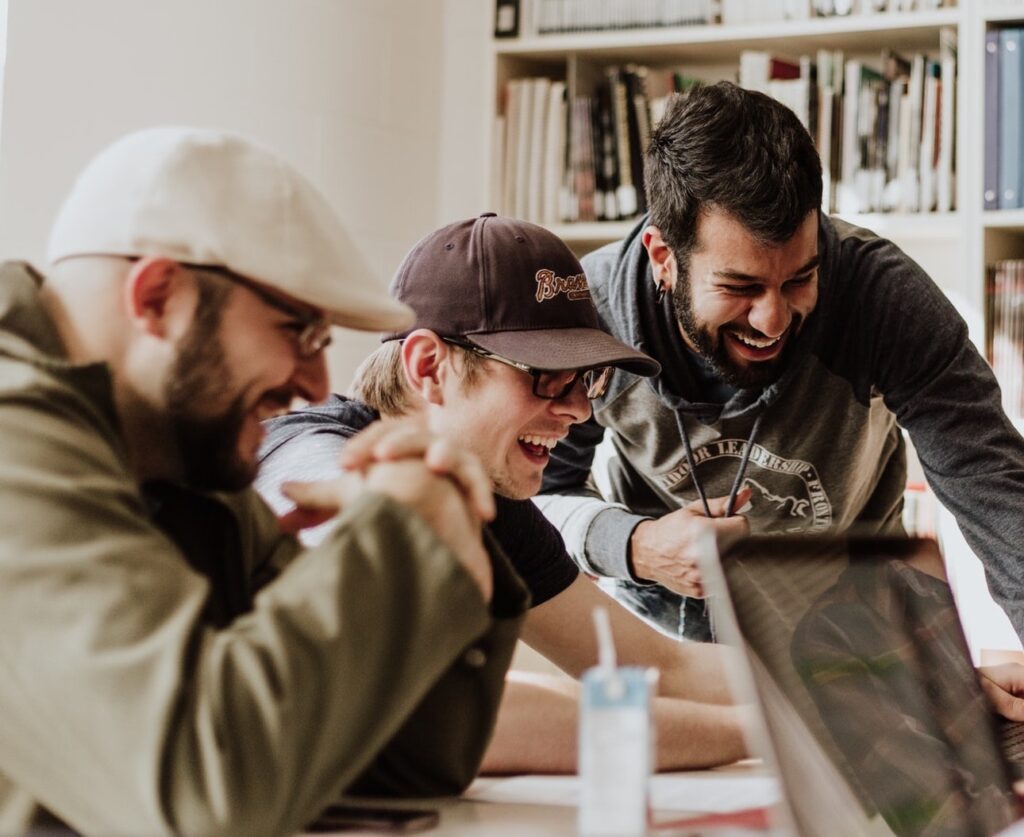The Big Give 2022
In 2022, Kennedy Street Recovery is taking part in The Big Give Christmas Challenge, the UK’s biggest online match funding campaign. It takes place from 29 November to 6 December during which donations to us will be doubled.
We are aiming to raise a total of £30,000 of vital funds to ensure that our Community Recovery Hub has a long-term, permanent home.
If you would like to get involved and help us raise our target, please contact us for more details.
The Kennedy Street Community Recovery Hub
Why are you setting up the Hub?
The cost of addiction is high for individuals, their families and society in general. The people we support have complex interlinked needs, for example, mental health issues associated with being a victim of domestic violence, and have a range of addictions from alcohol and drugs, to sex, gambling or food.
Addicts are often stuck in a cycle of addiction, treatment and then falling back into addiction. This happens when they are unsupported in their recovery and they feel they don’t have a positive future to look forward to.
How will the Hub solve these problems?
The Kennedy Street hub provides a safe space for people to find out about recovery options and to come together to meet and learn from peers who are in recovery. We also offer recovery support and coaching, workshops to help personal development and future employment opportunities, and volunteering opportunities to help others.
We work intensively with people, giving wrap-around support to help them sort out sometimes chaotic lives, and mentoring and coaching to help them sustain their recovery.
How will the funds be used?
To run a weekly Families in Recovery day where families with a loved one looking to recover, can access peer recovery support, talk to people and families who have been through similar issues, and access music, filmmaking, or healthy eating workshops.
To enable us to train up to 15 volunteers with lived experience of recovery to become Recovery Coaches, who will then lead daily workshops supporting others into and through the recovery process.
To support the running costs of our helpline which took 2,487 calls last year and is open every day to provide information about local routes to recovery. We will train more volunteers to run the helpline and support people trying to access help.

To increase the opening hours of our new hub and reach over 100 people a week. Funding will also eventually help us to open a drop-in cafe area for people to discover support and find out about how recovery can work for them.
What will the impact of the Hub be?
Sustained recovery from drug and alcohol addiction by bringing people into a peer support community.
Improved mental health and physical wellbeing – by coaching and mentoring people we can improve underlying negative issues.
Greater awareness of local support networks and professional services – to help maintain and sustain recovery it is vital that people are aware of and integrated into existing drug and alcohol fellowships and community support.
How will you measure this impact?
We set well-being milestones with individuals and monitor their progress towards them. We monitor numbers such as referrals onto different recovery pathways, calls to our helpline, and attendance of workshops. We also collect personal testimonies, videos and case studies. The stories of the people we support are central to helping others into recovery, so we encourage people to share their experiences on our website, social media podcasts, and blog posts.
“I could not recommend Kennedy Street’s Recovery Coaching enough for those in need of help.
The level of understanding and compassion shown by all the staff, from the initial helpline call to the partnership I established with my recovery coach, has made my journey life-changing. I came to Kennedy Street so ill-informed of the struggles I was going through, the shame and guilt I was carrying and how important family recovery is, the knowledge I and my family have gained has altered the way we think and act each day.
I will say this though, you get out what you put in. If you truly give it your all, the support is there day in, day out, to guide you down the uncomfortable path you’re needing to traverse to transform yours and your family’s life for the better.“
Dan, 34. Frontline worker.
Start your recovery with one easy step.
You can call us 9am – 9pm 7 days a week
020 3416 3643
or email us.
You might also like ...
Hub notes #4 – June 11
Seven of us adults plus Asterix (the baby) were joined by Aura who gave us an hour of relaxation with Kundalini Yoga. We all enjoyed the experience - including Asterix who did a perfect posture without a mat.In the pic above you’ll see our little library table - we offer a...
Hub notes #3 – May 28
Sarah had been to a cocktail bar and had a delicious non alcoholic cocktail or mocktail. Deli had enjoyed a delicious virgin mojito at a restaurant and also shared her Slimming World recipe for fake Pimm’s. Lots of people had a ‘go-to’ delicious drink - often soda based in a...
‘Anonymous but not Invisible’ at the Houses of Parliament
Dan Carden, Labour MP for Liverpool, Walton, hosted the event. To hear him give a speech, and to have the opportunity to talk to him afterwards was inspiring. If you have not listened to the speech that he made during a Parliamentary debate then I urge you to do so. He is in...

Recovery Connects Programme
These interactive, workshop (currently on Zoom) sessions provide various paths to recovery from all types of addiction, improve mental well-being and build resilience.

Workplace Training Programme
Kennedy Street Workplace Training offers an opportunity to embed a recovery model of care into the workplace culture. The training equips staff and managers with knowledge, peer support skills and an understanding of recovery resources that will enable them to signpost and support any of their co-workers, friends and families into recovery. These positive changes help establish better internal organisational cultures which, in turn, create enabling, resilient workplaces.

Talks, Stories, Resources
Watch or listen to our RecoveryTalks season 1, all streamed to our Facebook and Youtube during lockdown 1.
We also have an inspirational collection of Recovery Stories where you can read all sorts of accounts of how people have dealt with their own recovery.
There is also a really useful series of resources on this site, from what to ask your GP, the different recovery organisations out there and many more.



